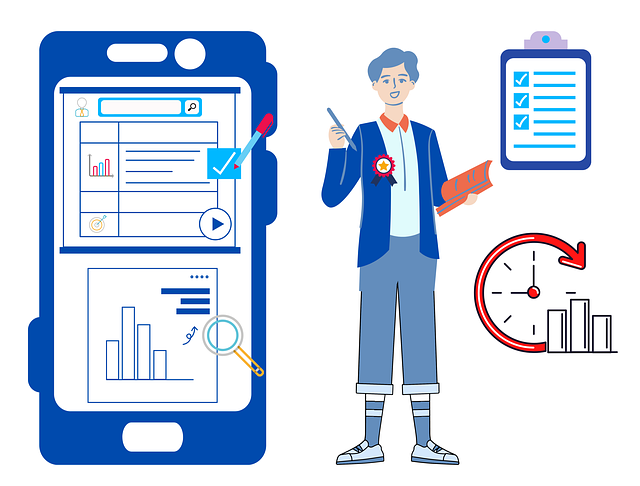Artificial Intelligence (AI) is transforming vehicle repair, driving efficiency and profitability through AI coaching. By analyzing historical data, AI algorithms improve diagnostic accuracy, enabling proactive issue identification and cost-saving repairs. Predictive maintenance models optimize service scheduling, reducing downtime and enhancing customer satisfaction. AI coaching platforms suggest optimal repair sequences, recommend high-quality parts, and predict equipment maintenance needs, empowering managers to streamline operations, minimize errors, maximize revenue, and gain a competitive edge in the automotive repair industry.
In today’s competitive market, vehicle repair shops are seeking innovative solutions to optimize operations and enhance profitability. Artificial Intelligence (AI) is revolutionizing the automotive industry, offering unprecedented opportunities for repair shops to streamline processes and improve efficiency. This article explores the transformative power of AI, focusing on its role in coaching automotive professionals. We’ll uncover how AI-driven strategies can boost shop performance, from improving diagnostic accuracy to maximizing resource utilization, ultimately driving greater profitability.
- Understanding AI's Role in Optimizing Vehicle Repair Processes
- Enhancing Profitability: AI-Driven Coaching Strategies for Automotive Shops
- Implementing AI Solutions: A Step-by-Step Guide to Success
Understanding AI's Role in Optimizing Vehicle Repair Processes

Artificial Intelligence (AI) is transforming the automotive industry, and its role in optimizing vehicle repair processes is significant. By leveraging AI coaching, repair shops can enhance their operational efficiency and profitability. AI algorithms can analyze vast amounts of data from various sources, including vehicle sensors, historical repair records, and customer feedback, to provide insights that improve diagnostic accuracy and repair strategies.
For instance, AI can assist in identifying patterns and potential issues before they become major problems, reducing the time and cost of repairs. Moreover, AI-driven predictive maintenance models enable shops to schedule service appointments more effectively, minimizing downtime for both customers and technicians. This strategic approach not only enhances overall productivity but also fosters customer satisfaction by ensuring faster turnaround times and higher quality repairs.
Enhancing Profitability: AI-Driven Coaching Strategies for Automotive Shops

AI-driven coaching is transforming vehicle repair shops by offering innovative strategies to enhance profitability. By leveraging machine learning algorithms, AI systems can analyze vast datasets of historical repairs, component failures, and customer feedback to identify trends and patterns. This predictive analytics enables technicians to make informed decisions, streamlining work processes and reducing costly errors.
For instance, AI coaching platforms can suggest optimal repair sequences, recommend high-quality replacement parts based on past performance, and predict equipment maintenance needs. These insights empower shop managers to optimize scheduling, minimize downtime, and maximize revenue. Ultimately, embracing AI coaching for automotive repairs translates into improved efficiency, higher customer satisfaction, and a competitive edge in the market.
Implementing AI Solutions: A Step-by-Step Guide to Success

Implementing AI Solutions: A Roadmap to Success for Vehicle Repair Shops
Step 1: Assess Current Operations: Begin by evaluating your shop’s current processes and pain points. Identify areas where manual tasks are time-consuming or error-prone, such as diagnostic procedures, parts inventory management, or scheduling appointments. Understanding these inefficiencies is crucial for pinpointing the most impactful AI applications.
Step 2: Prioritize Areas for Improvement: Focus on departments that can directly contribute to enhanced automotive repair profitability. For instance, AI coaching systems can revolutionize diagnostic accuracy and speed by analyzing vast datasets of vehicle issues and their solutions. This knowledge base can empower technicians, reducing time-consuming research and minimizing costly errors. Additionally, AI algorithms can optimize inventory management, forecasting parts requirements, and flagging potential stockouts, ensuring efficient operations.
AI has the potential to revolutionize vehicle repair shops by optimizing processes and boosting profitability. By implementing AI coaching strategies, shops can streamline operations, reduce costs, and enhance efficiency. Through automated diagnostics, predictive maintenance, and data-driven insights, AI enables mechanics to work smarter, not harder. Adopting these AI solutions is a step towards staying competitive in the modern automotive industry and ensuring long-term success.
